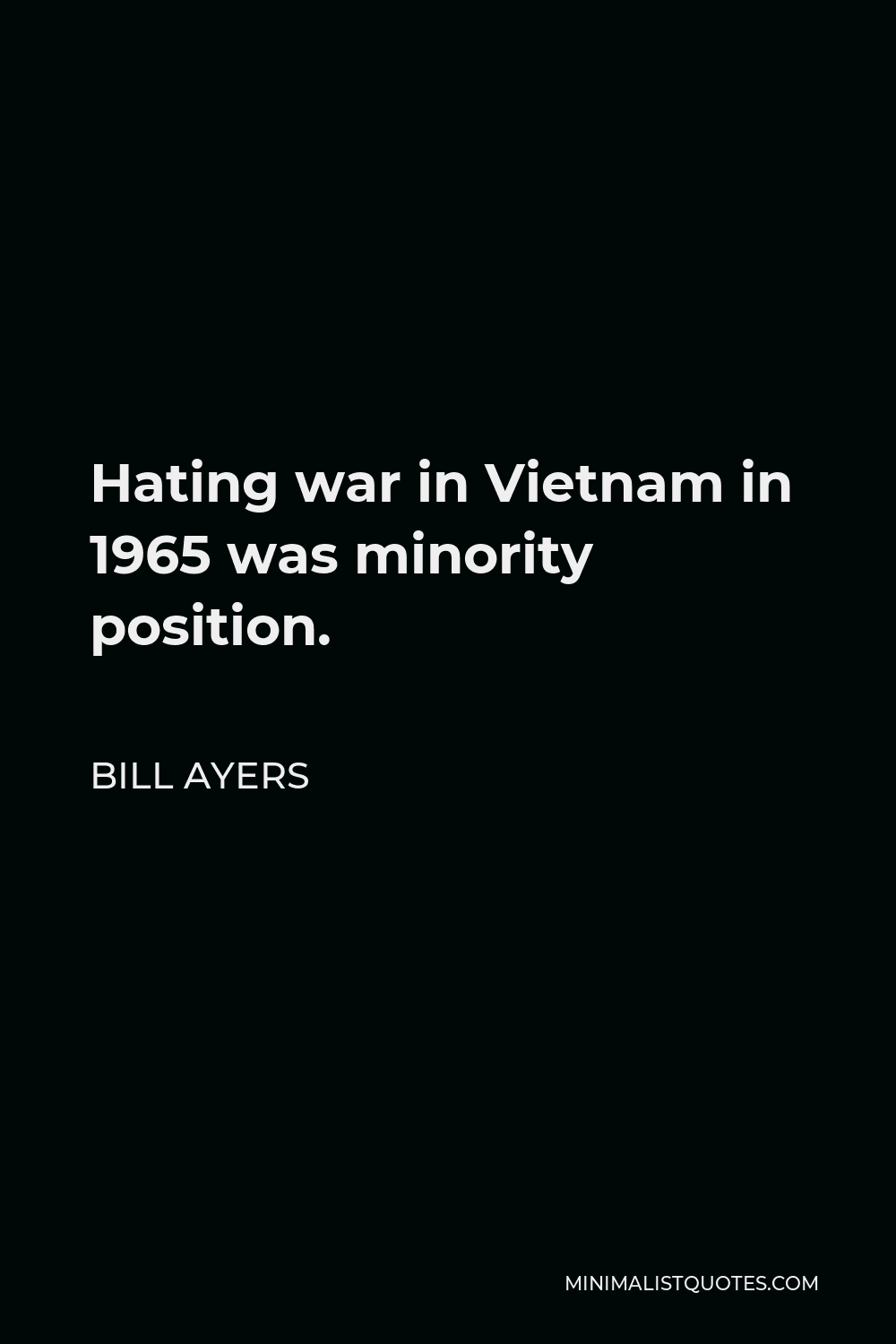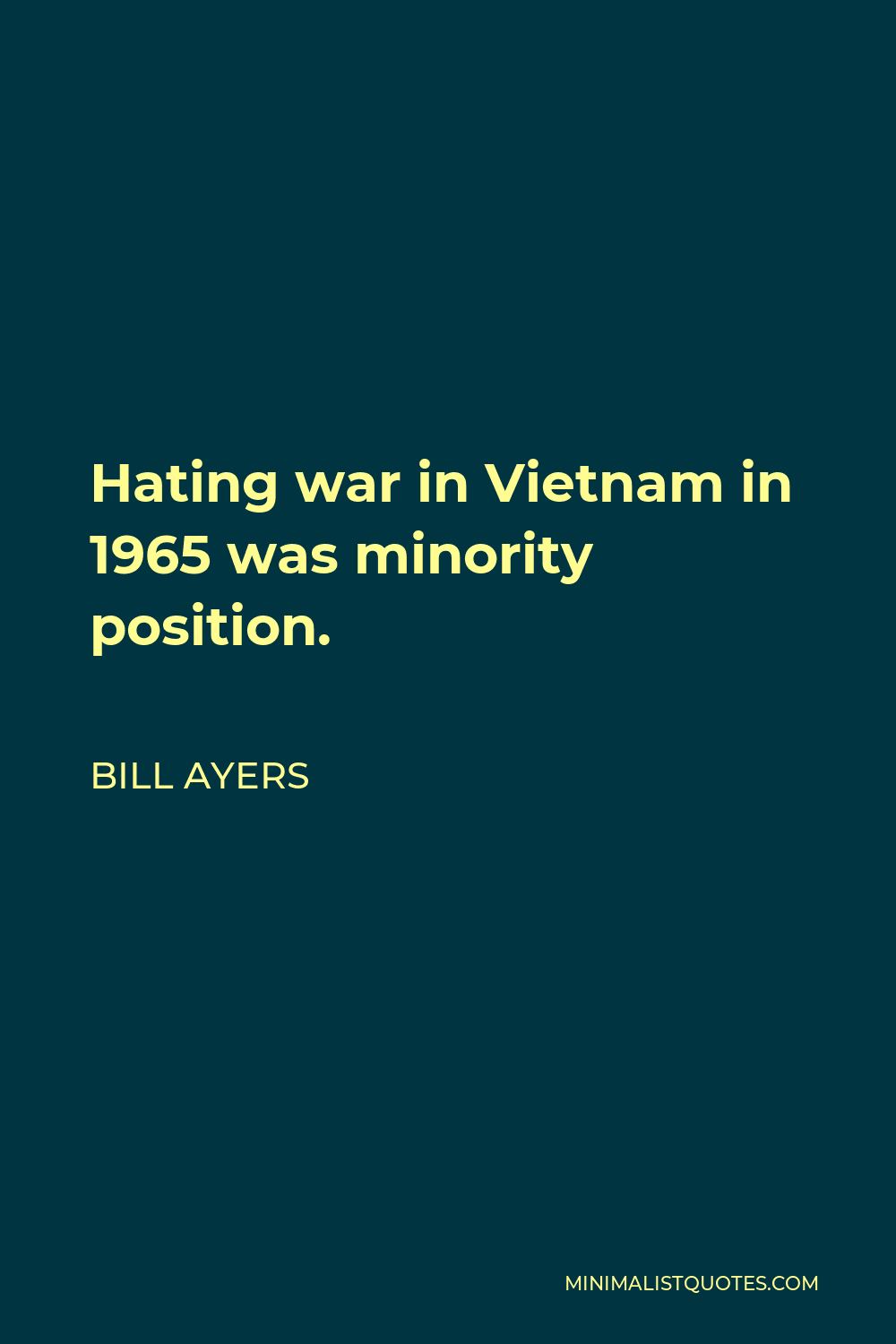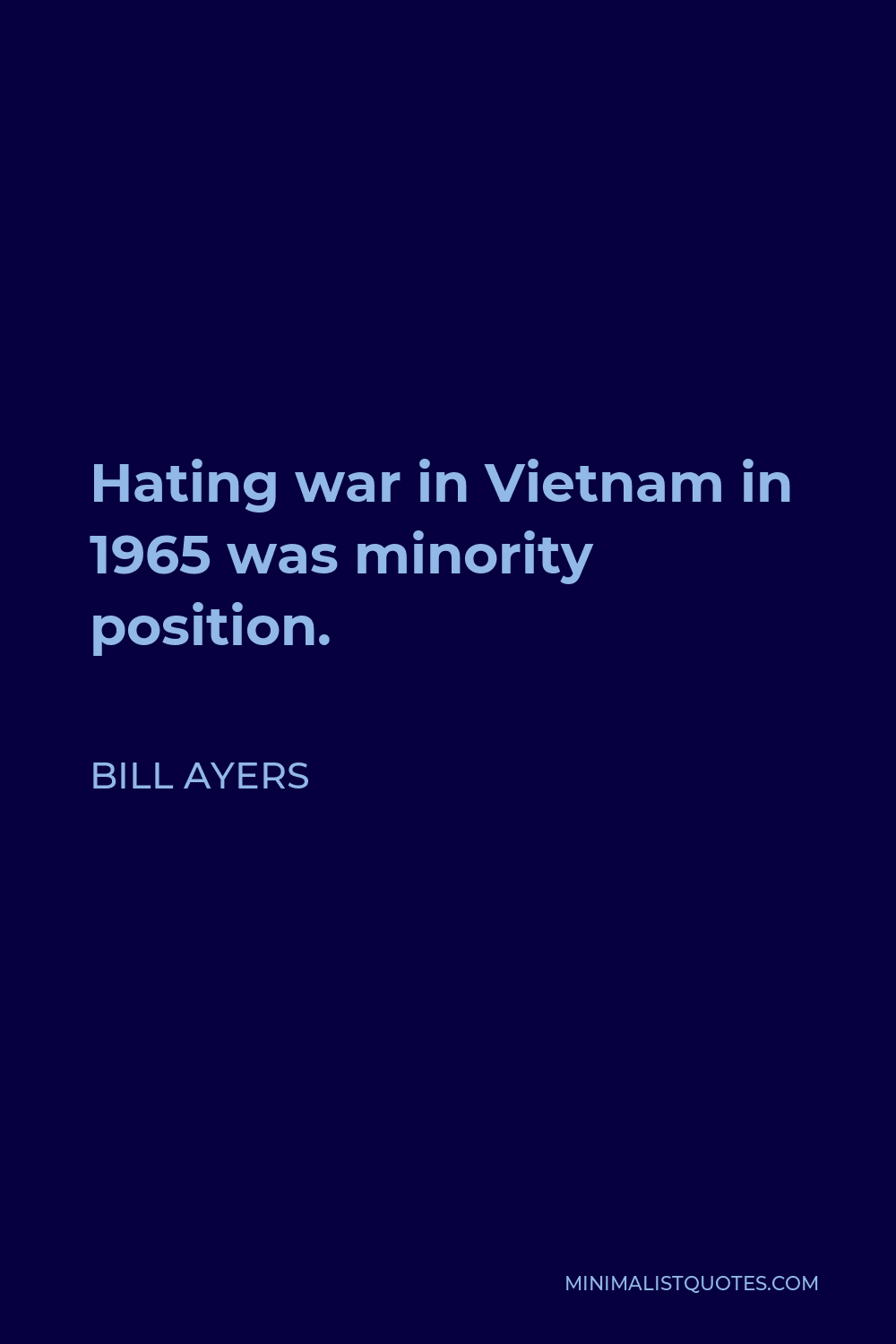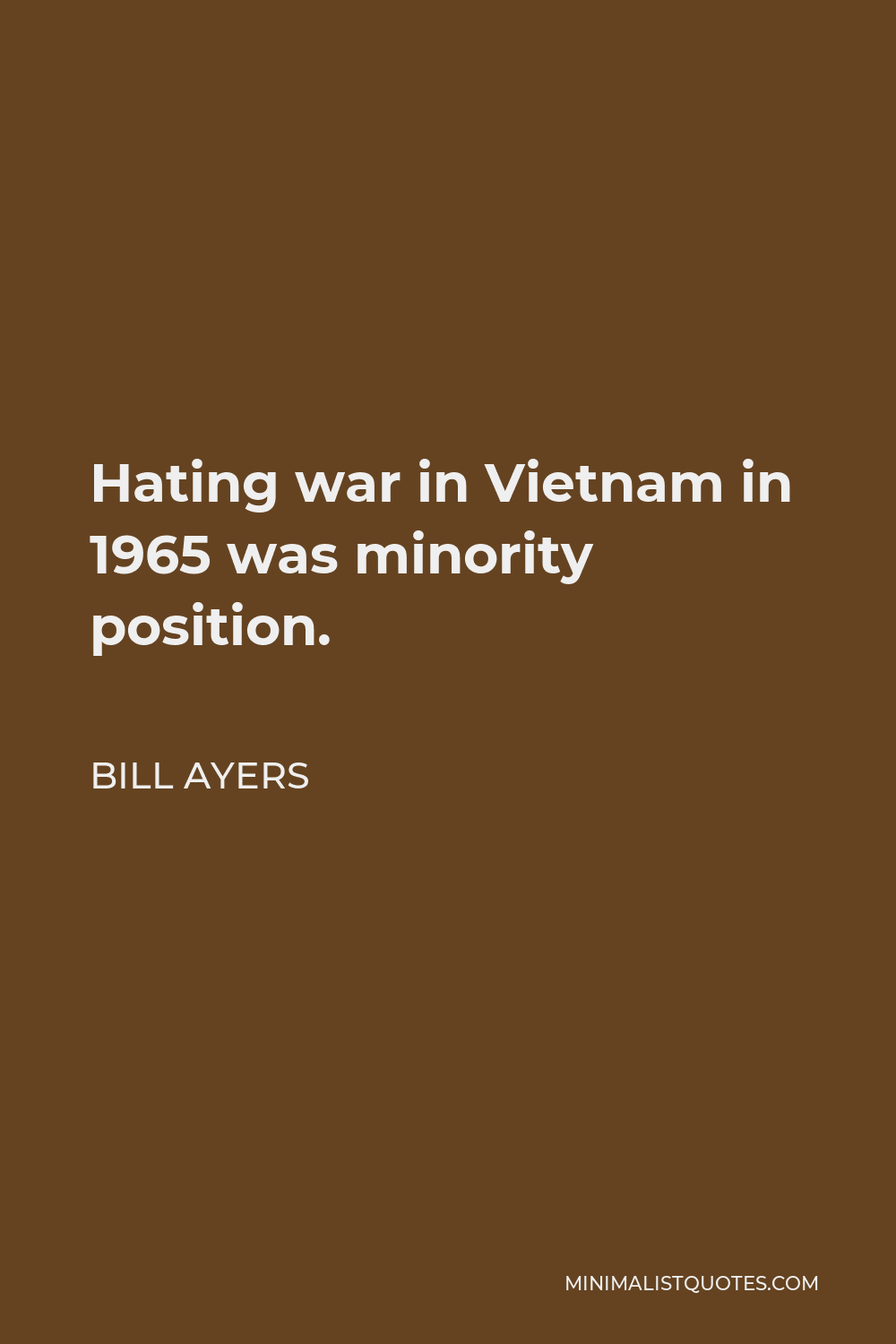In a wild and diverse democracy each of us should be trying to talk to lots and lots and lots of people outside of our own kind of comfort zone and community, and that injunction goes even further for political leaders.
BILL AYERSHating war in Vietnam in 1965 was minority position.
More Bill Ayers Quotes
-





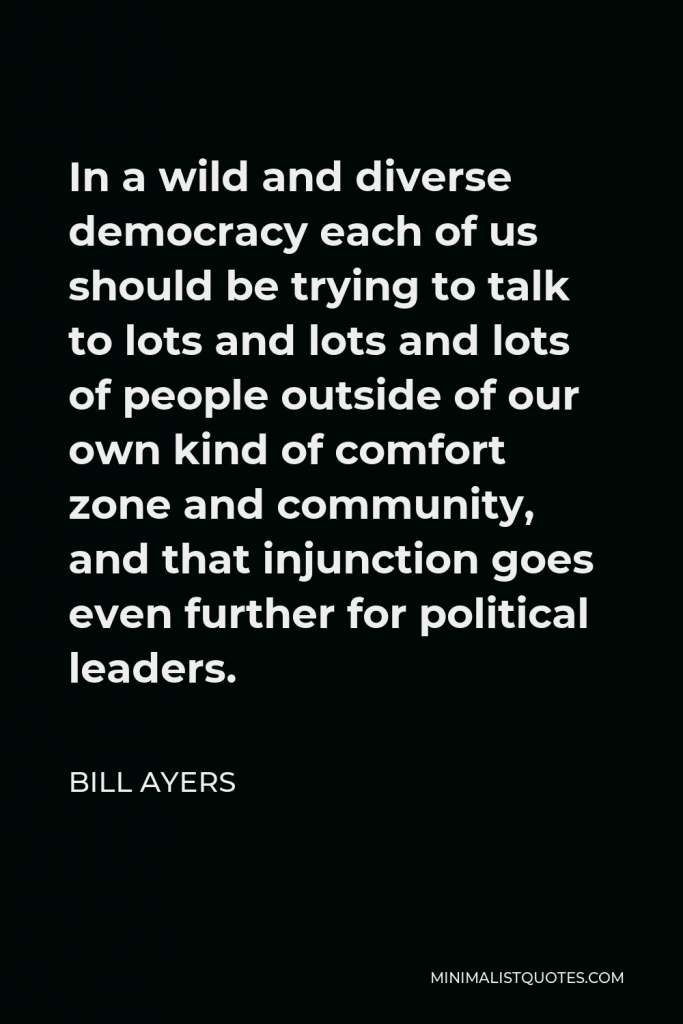

-





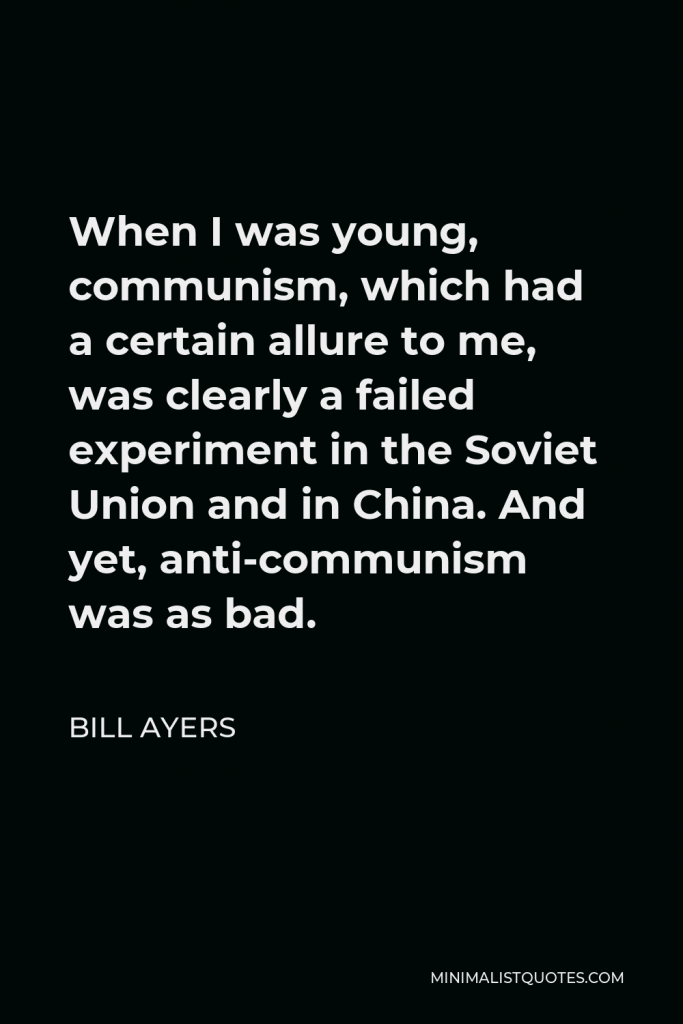

When I was young, communism, which had a certain allure to me, was clearly a failed experiment in the Soviet Union and in China. And yet, anti-communism was as bad.
BILL AYERS -





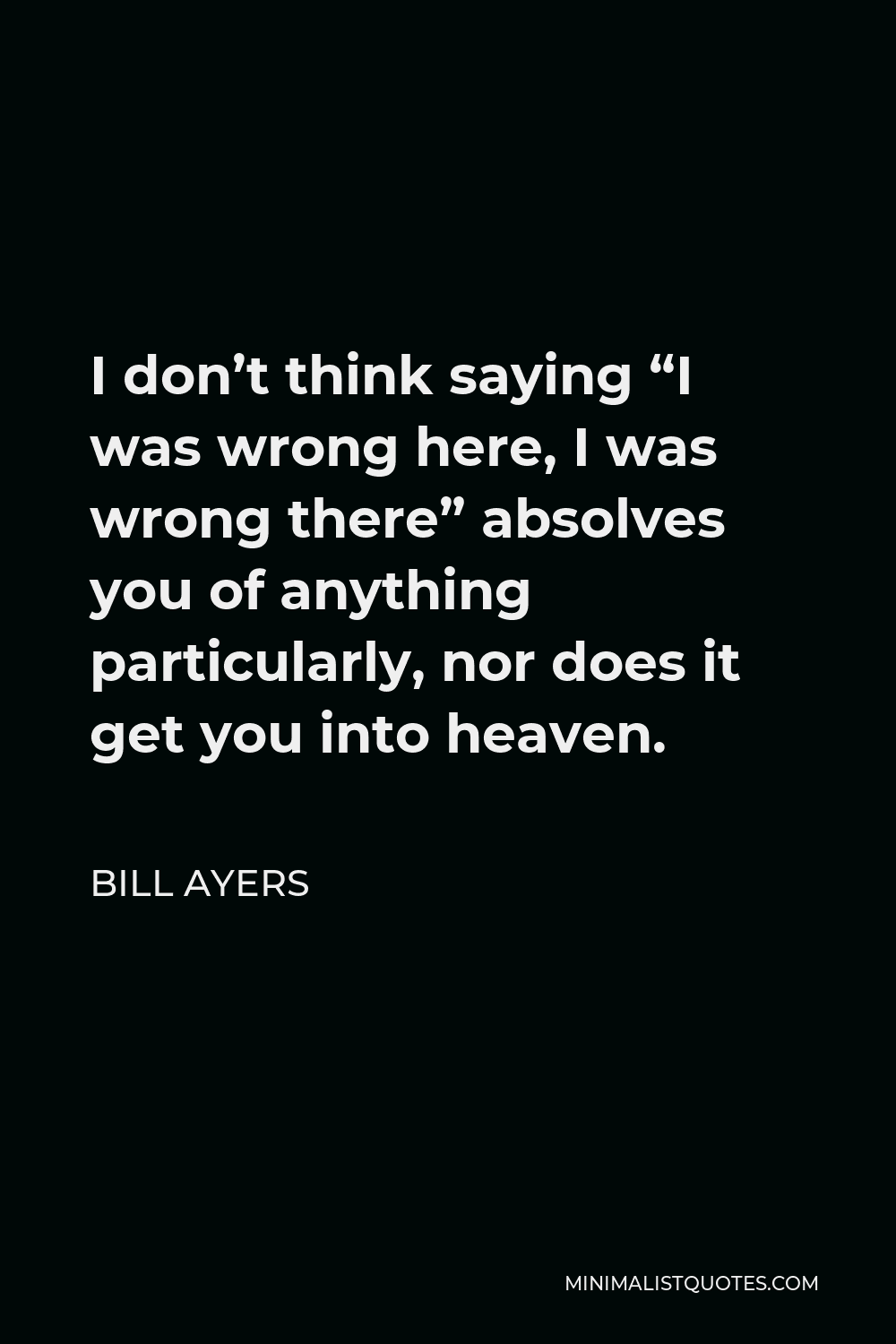
I don’t think saying “I was wrong here, I was wrong there” absolves you of anything particularly, nor does it get you into heaven.
BILL AYERS -





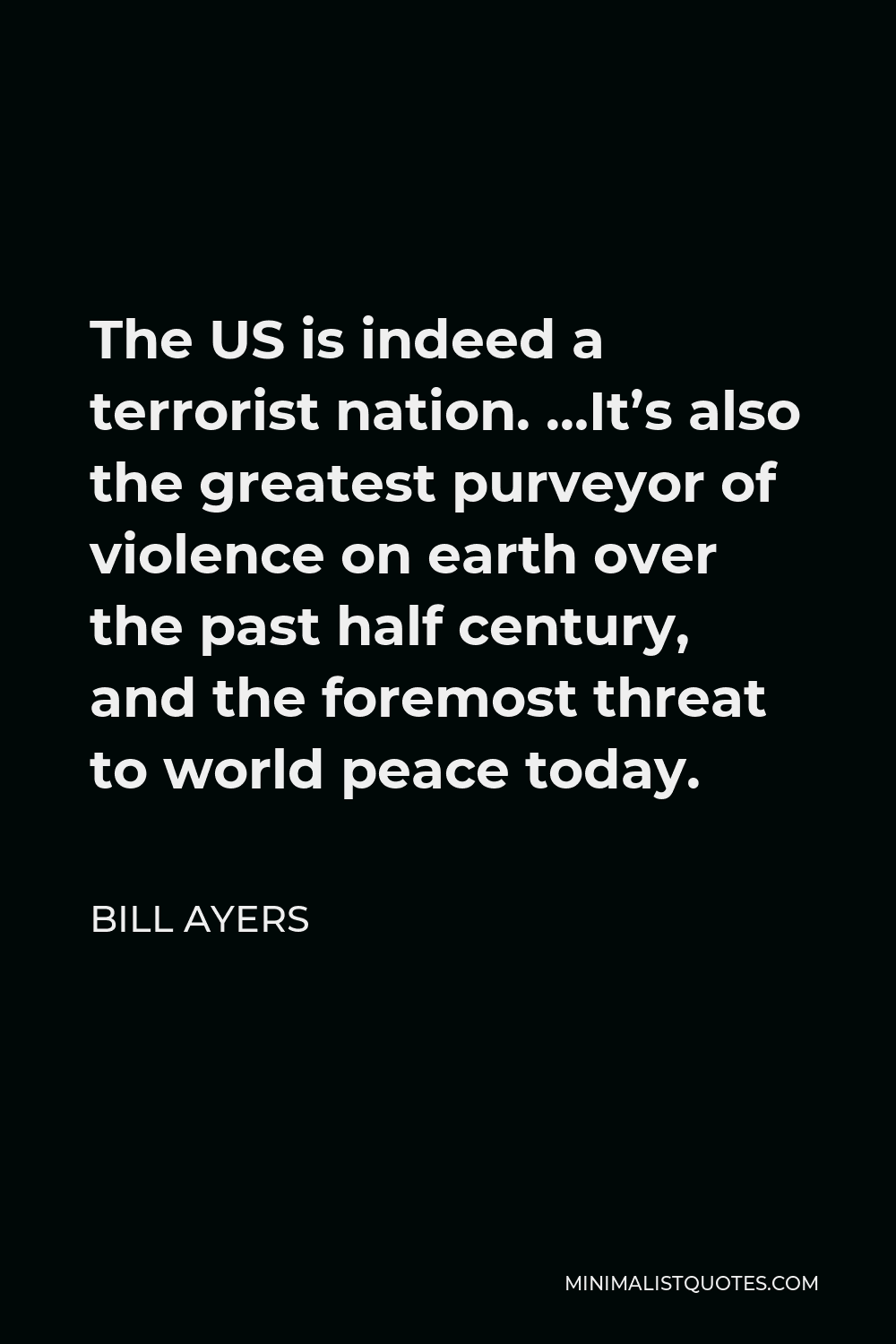
The US is indeed a terrorist nation. …It’s also the greatest purveyor of violence on earth over the past half century, and the foremost threat to world peace today.
BILL AYERS -





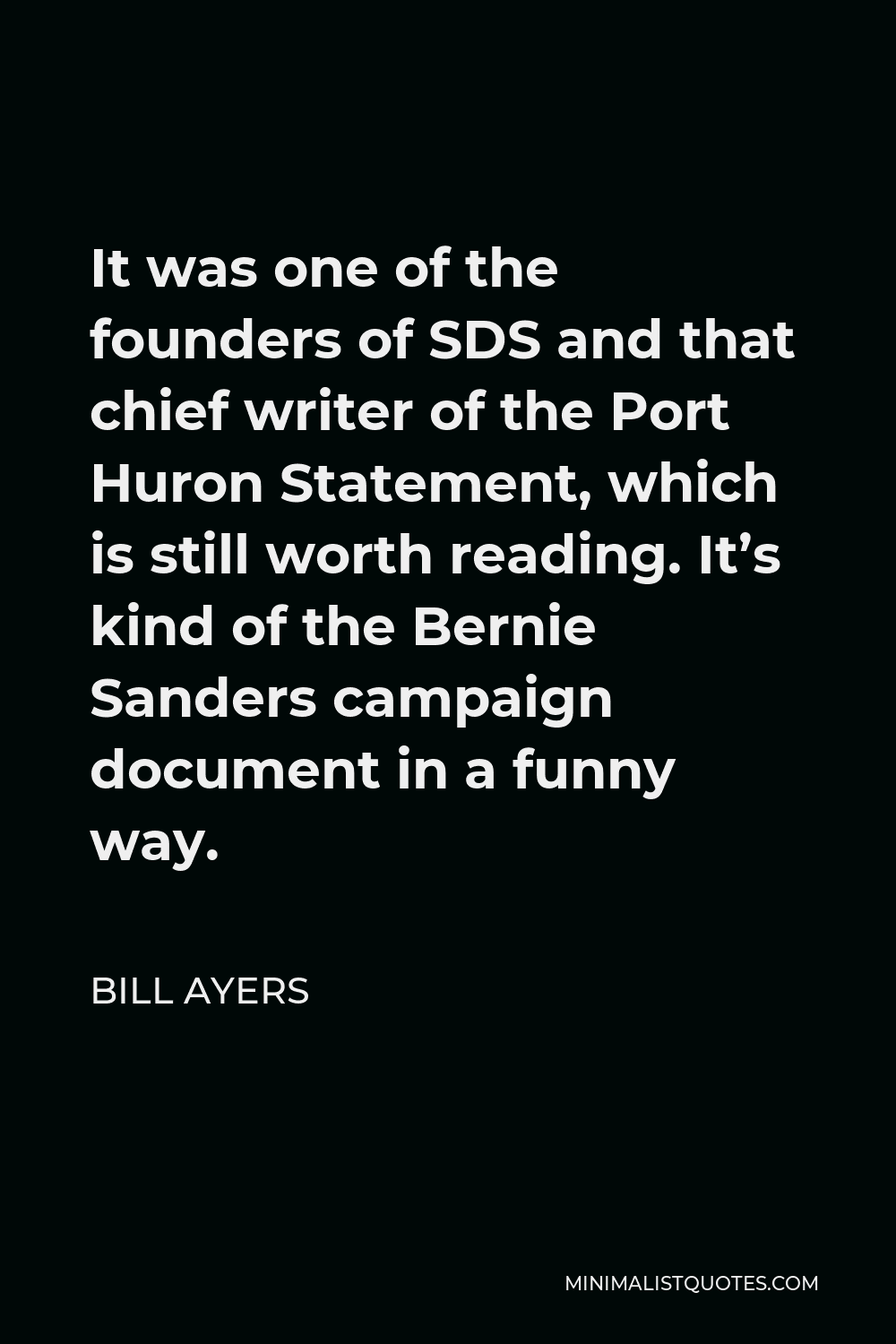
It was one of the founders of SDS and that chief writer of the Port Huron Statement, which is still worth reading. It’s kind of the Bernie Sanders campaign document in a funny way.
BILL AYERS -





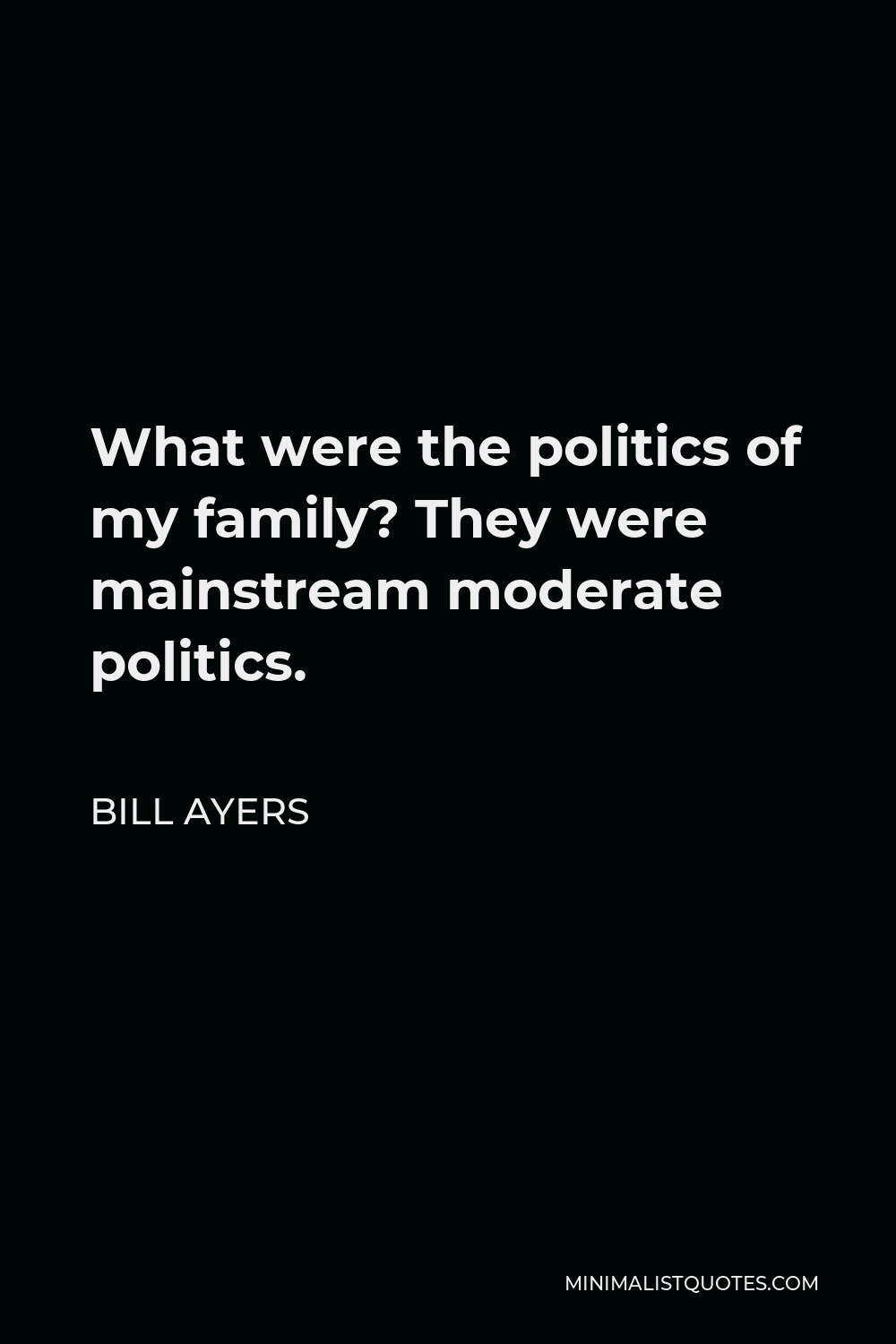
What were the politics of my family? They were mainstream moderate politics.
BILL AYERS -





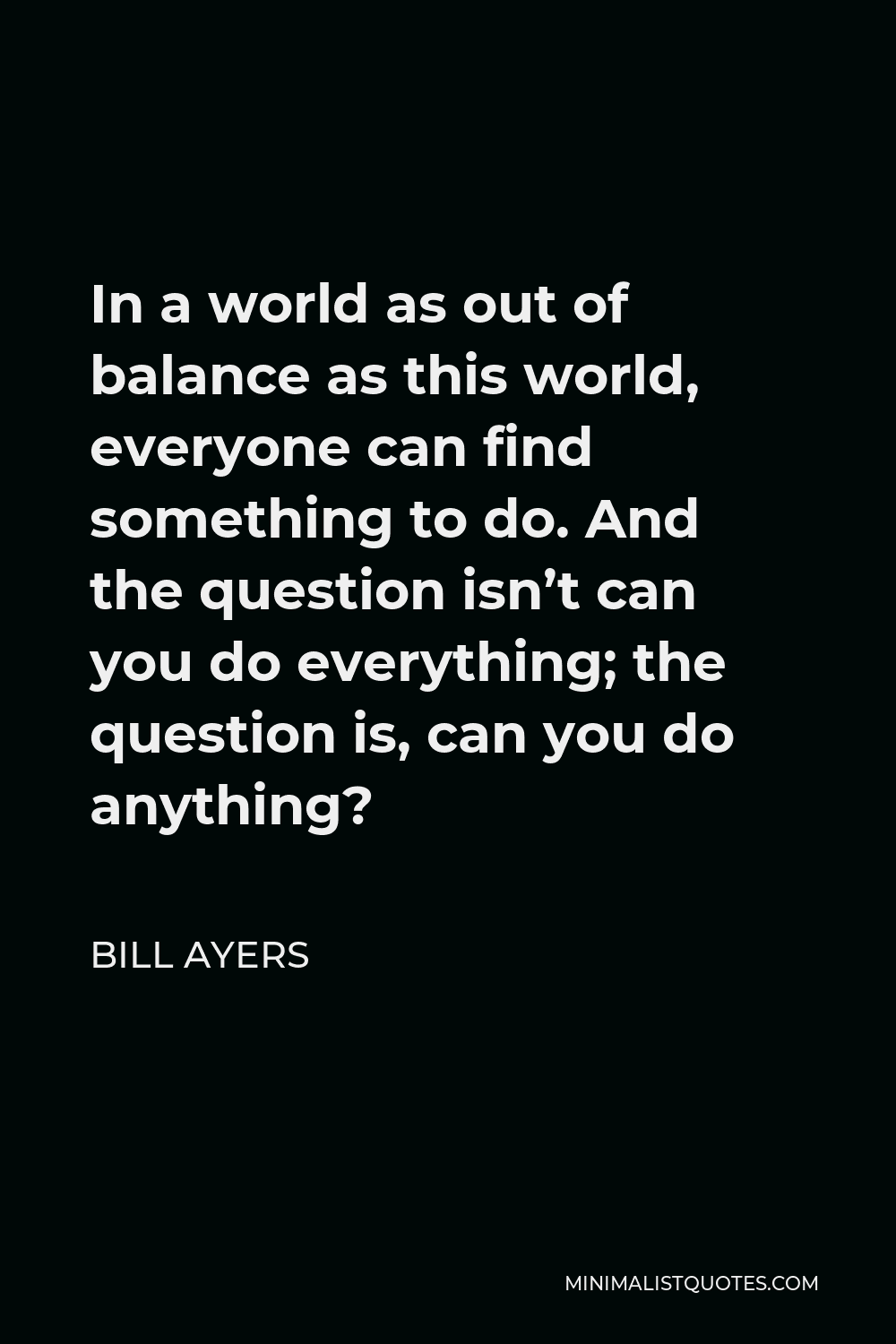
In a world as out of balance as this world, everyone can find something to do. And the question isn’t can you do everything; the question is, can you do anything?
BILL AYERS -





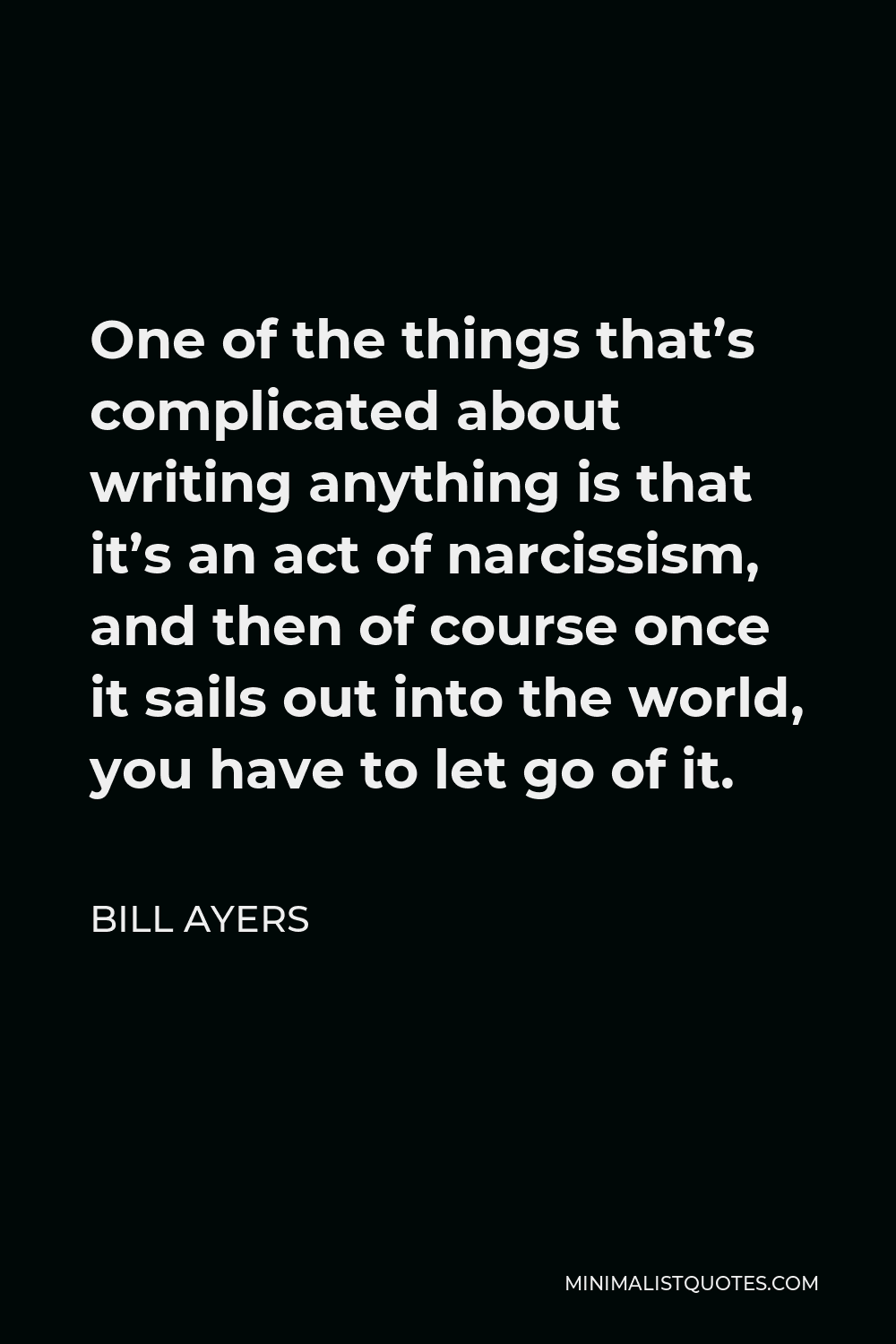
One of the things that’s complicated about writing anything is that it’s an act of narcissism, and then of course once it sails out into the world, you have to let go of it.
BILL AYERS -





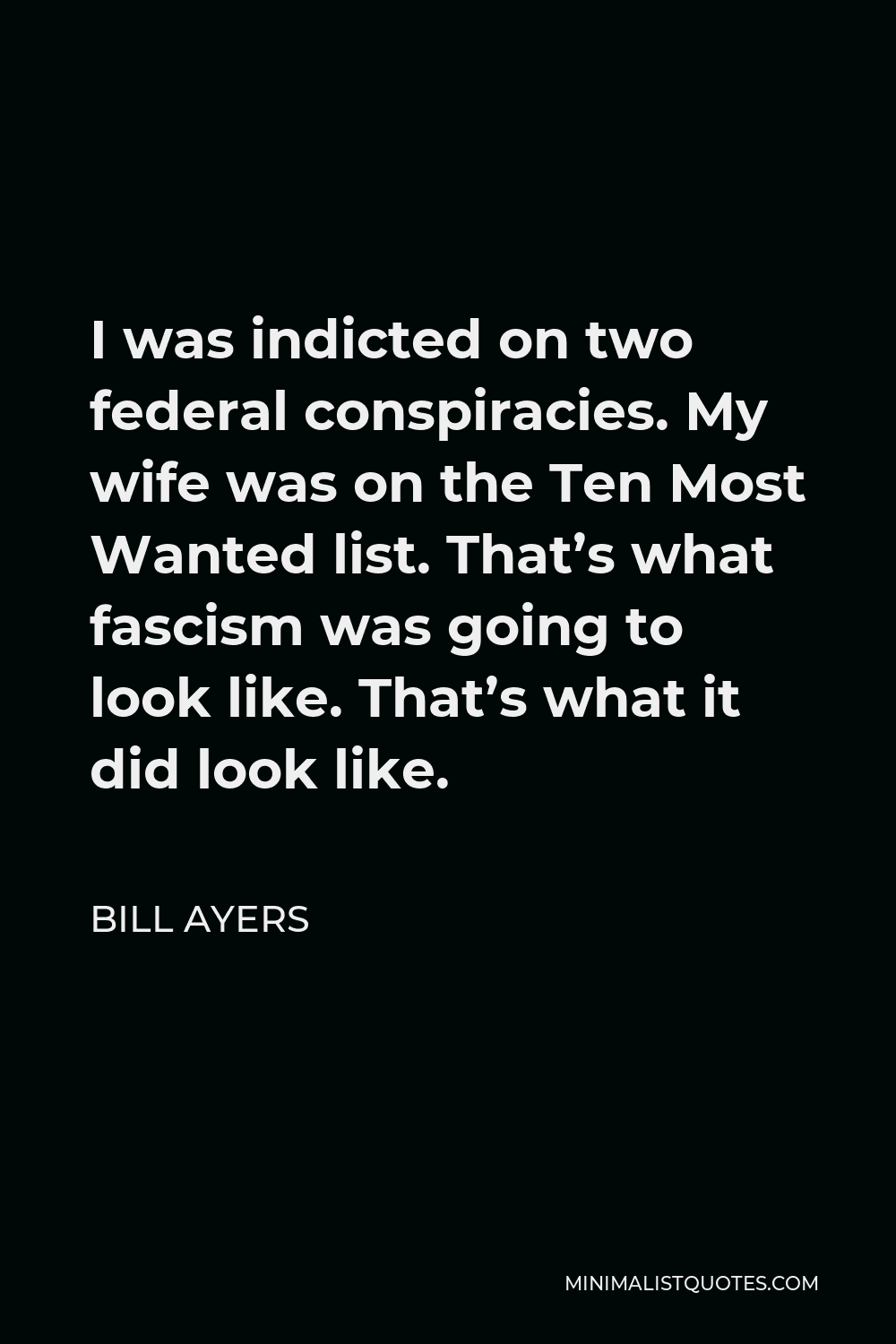
I was indicted on two federal conspiracies. My wife was on the Ten Most Wanted list. That’s what fascism was going to look like. That’s what it did look like.
BILL AYERS -





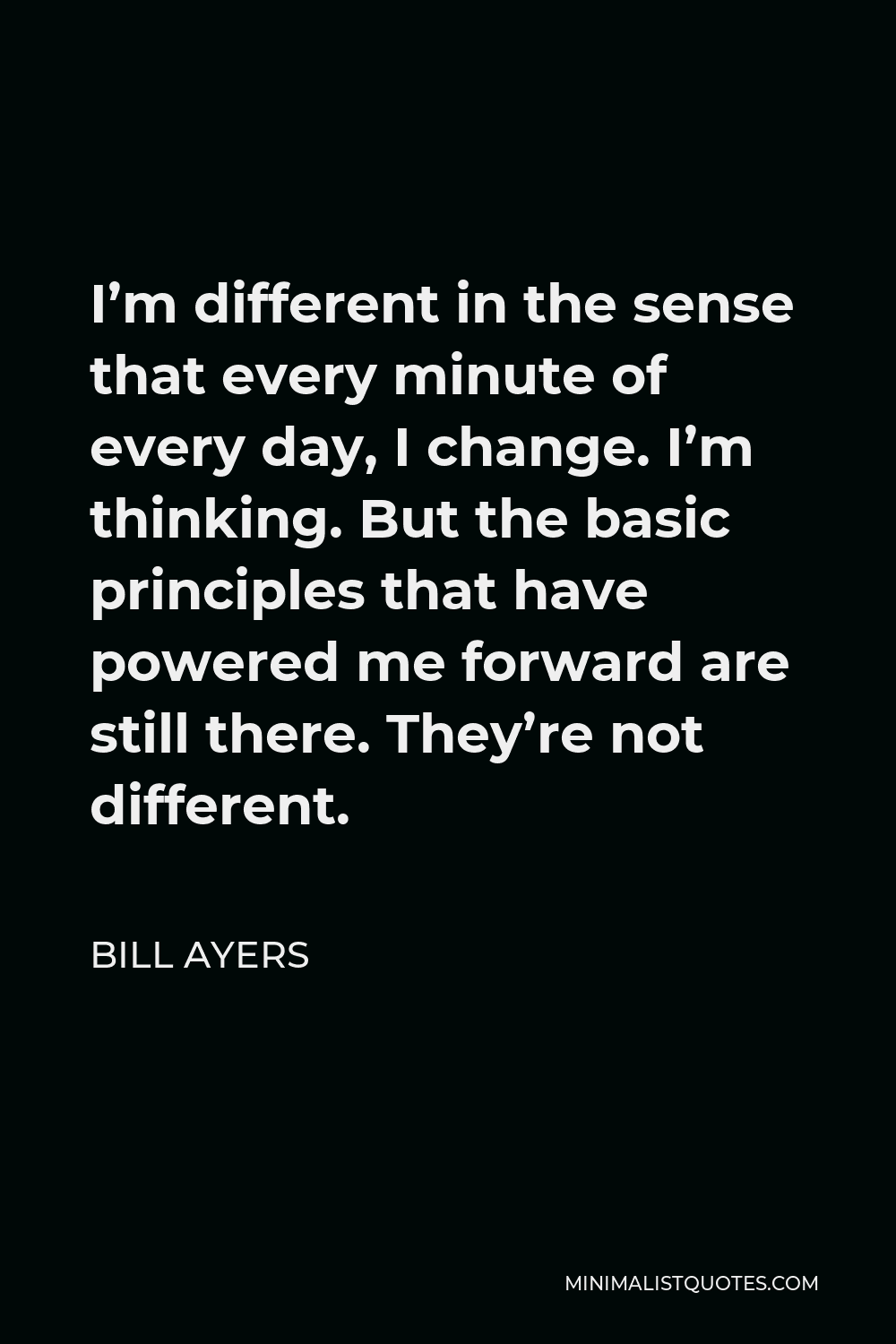
I’m different in the sense that every minute of every day, I change. I’m thinking. But the basic principles that have powered me forward are still there. They’re not different.
BILL AYERS -





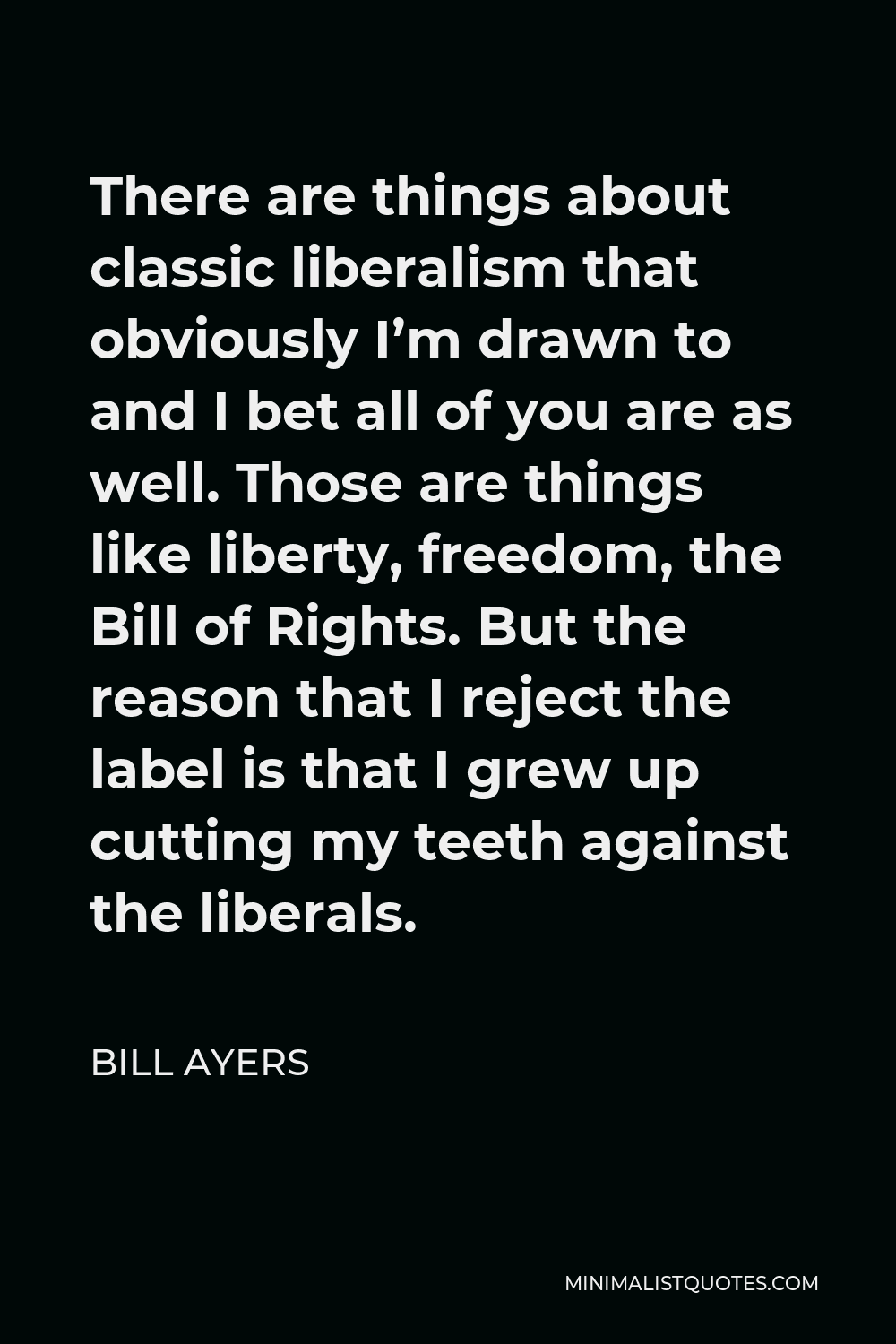
There are things about classic liberalism that obviously I’m drawn to and I bet all of you are as well. Those are things like liberty, freedom, the Bill of Rights. But the reason that I reject the label is that I grew up cutting my teeth against the liberals.
BILL AYERS -





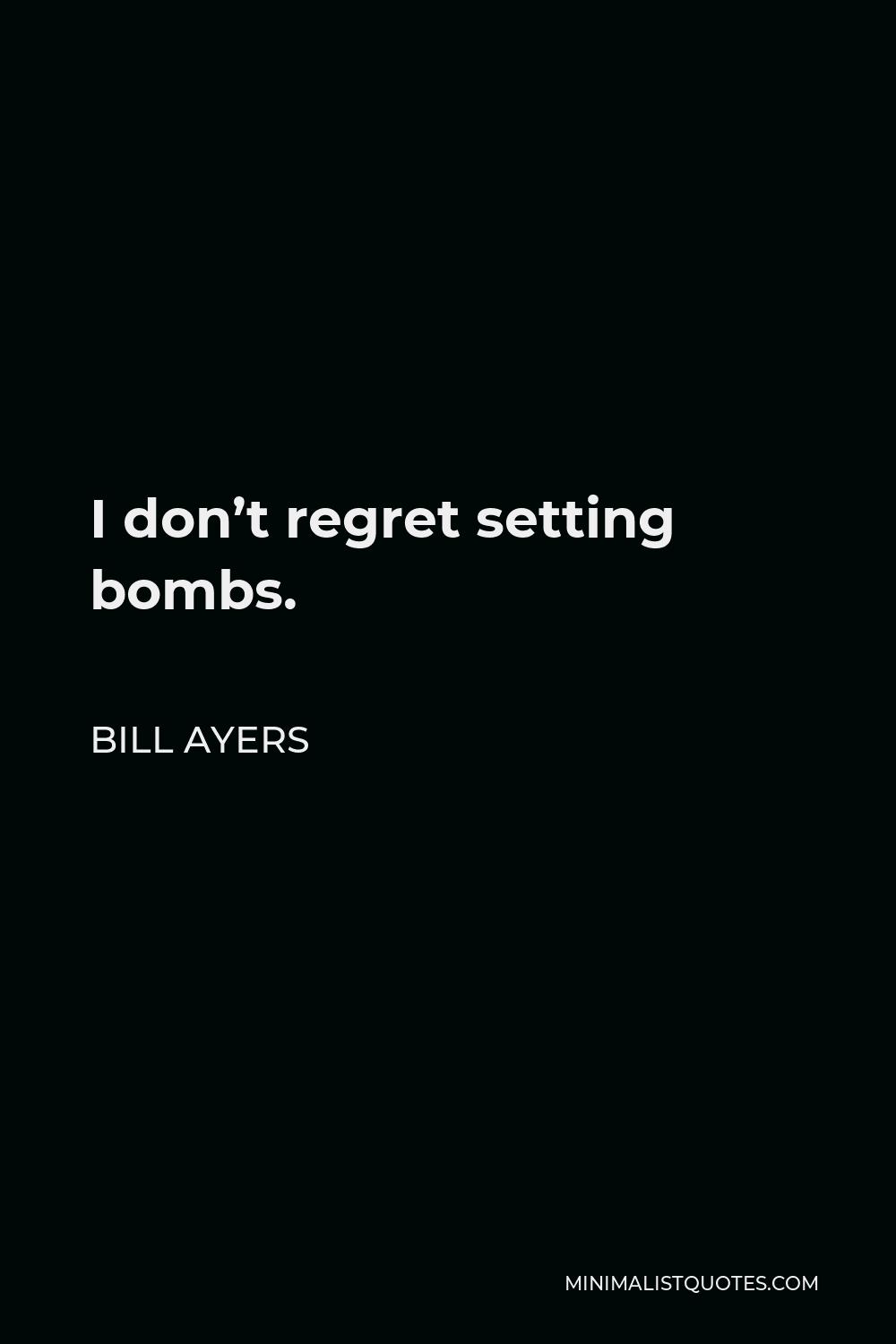
I don’t regret setting bombs.
BILL AYERS -





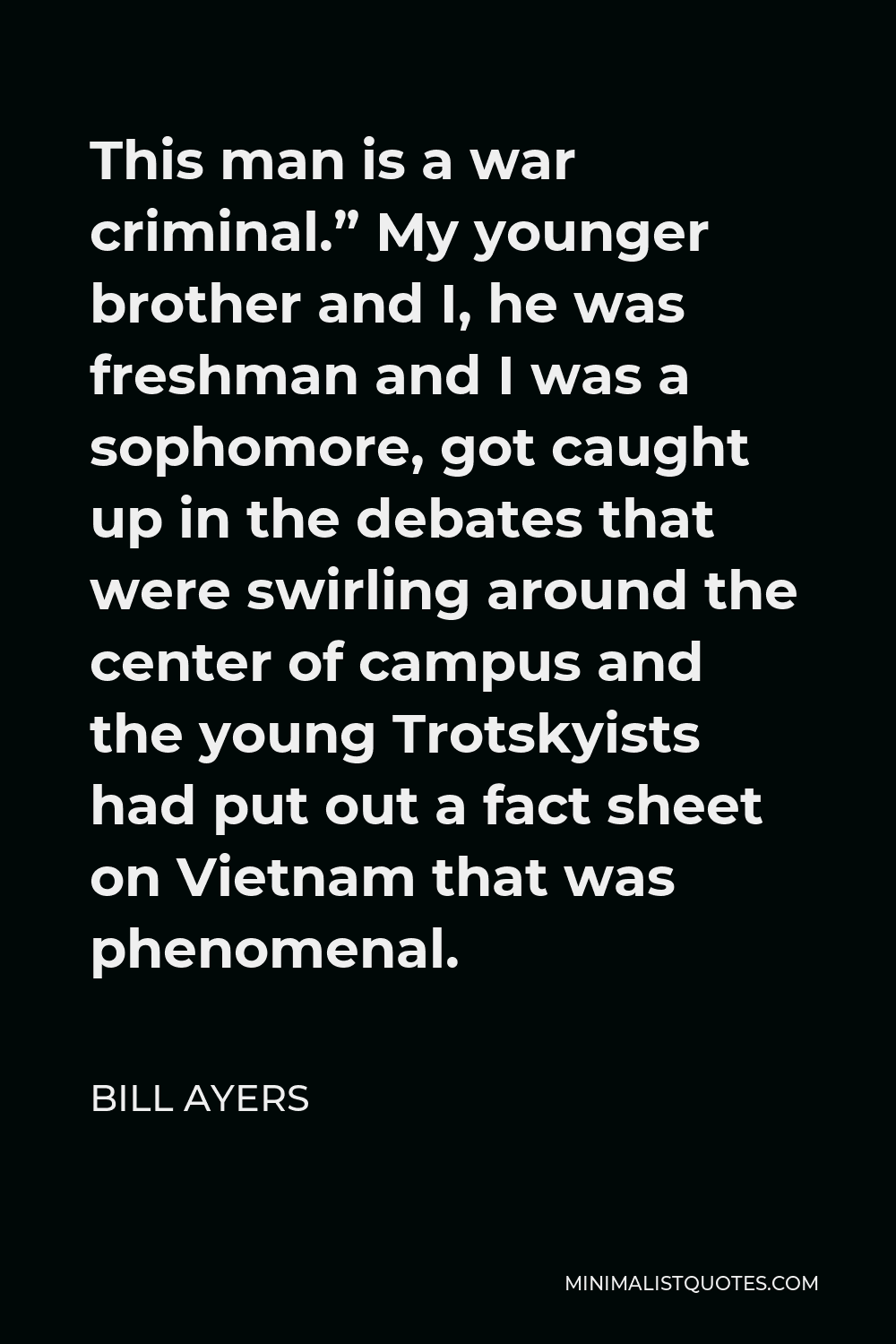
This man is a war criminal.” My younger brother and I, he was freshman and I was a sophomore, got caught up in the debates that were swirling around the center of campus and the young Trotskyists had put out a fact sheet on Vietnam that was phenomenal.
BILL AYERS -





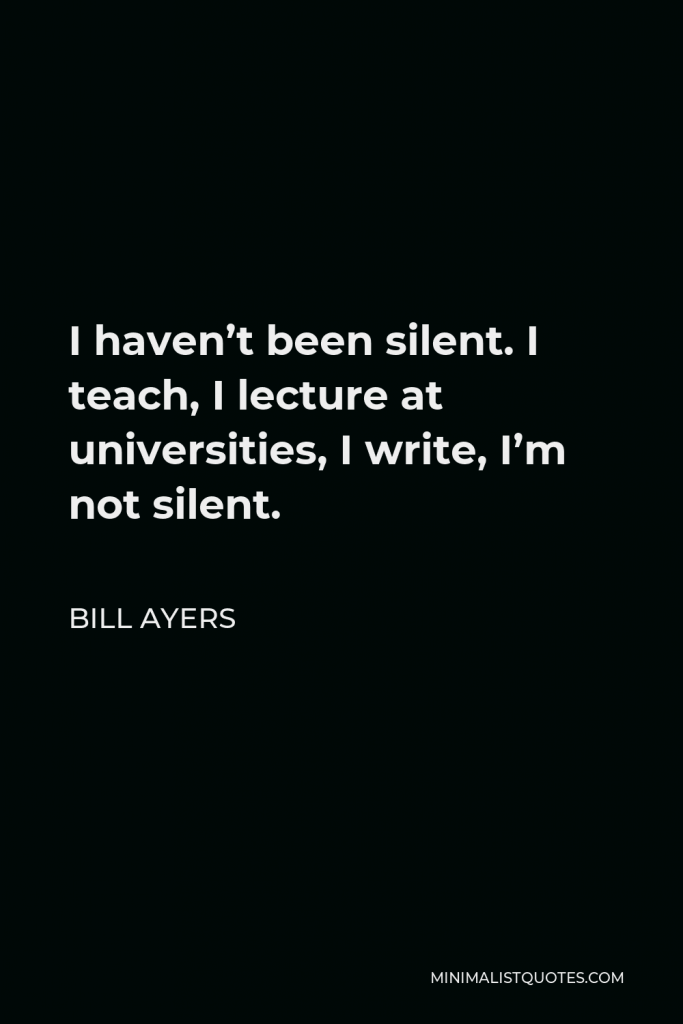

I haven’t been silent. I teach, I lecture at universities, I write, I’m not silent.
BILL AYERS -





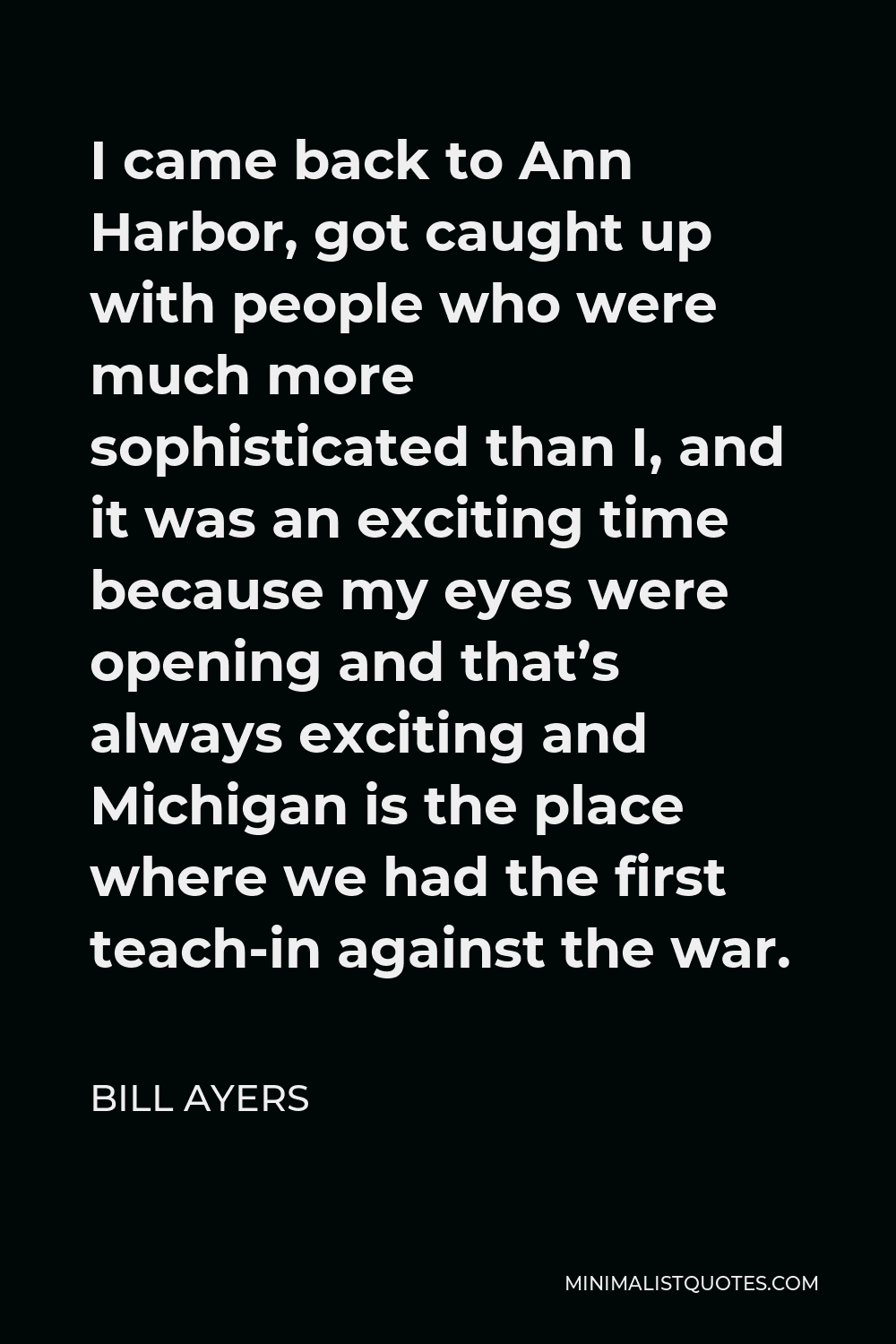
I came back to Ann Harbor, got caught up with people who were much more sophisticated than I, and it was an exciting time because my eyes were opening and that’s always exciting and Michigan is the place where we had the first teach-in against the war.
BILL AYERS -





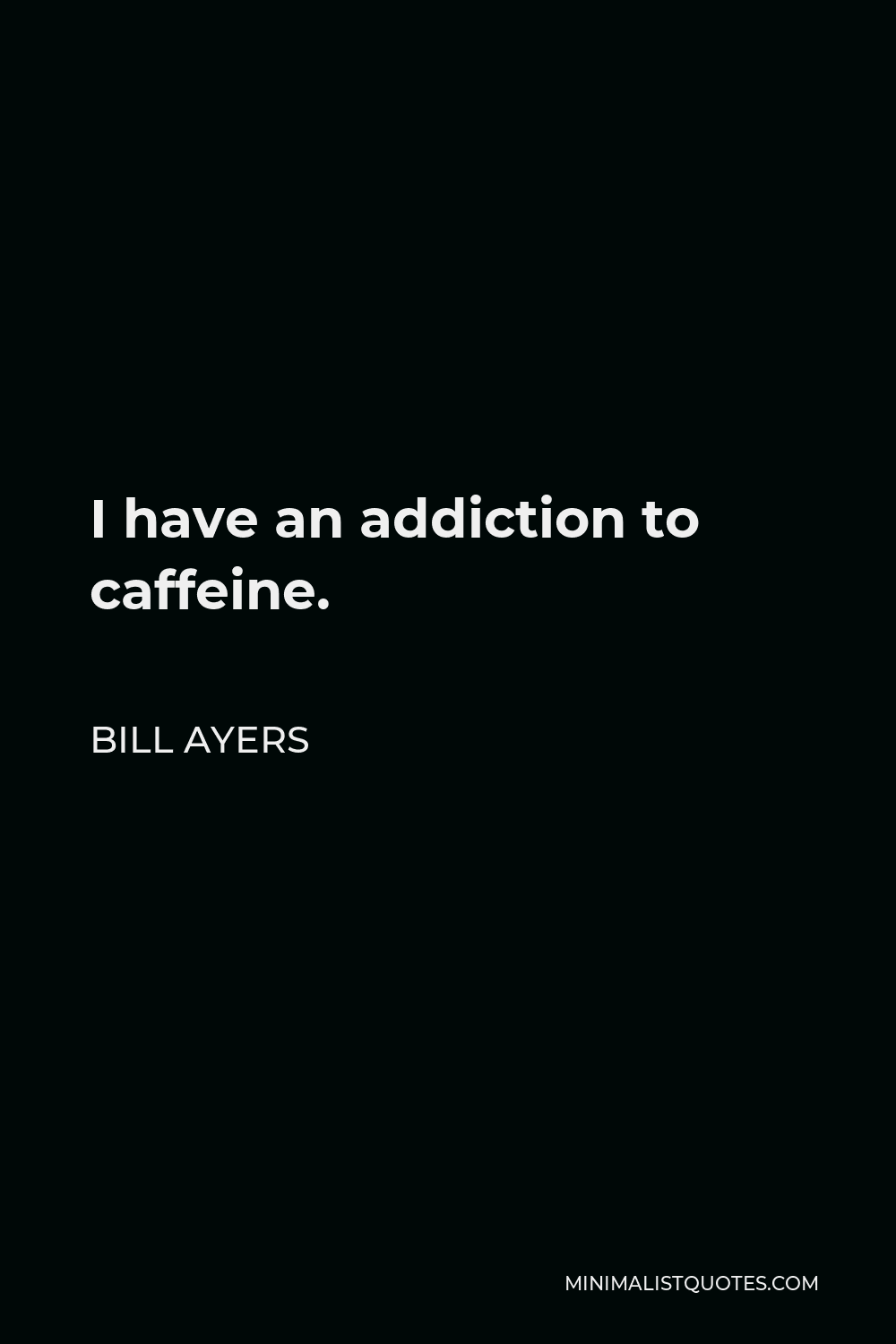
I have an addiction to caffeine.
BILL AYERS
